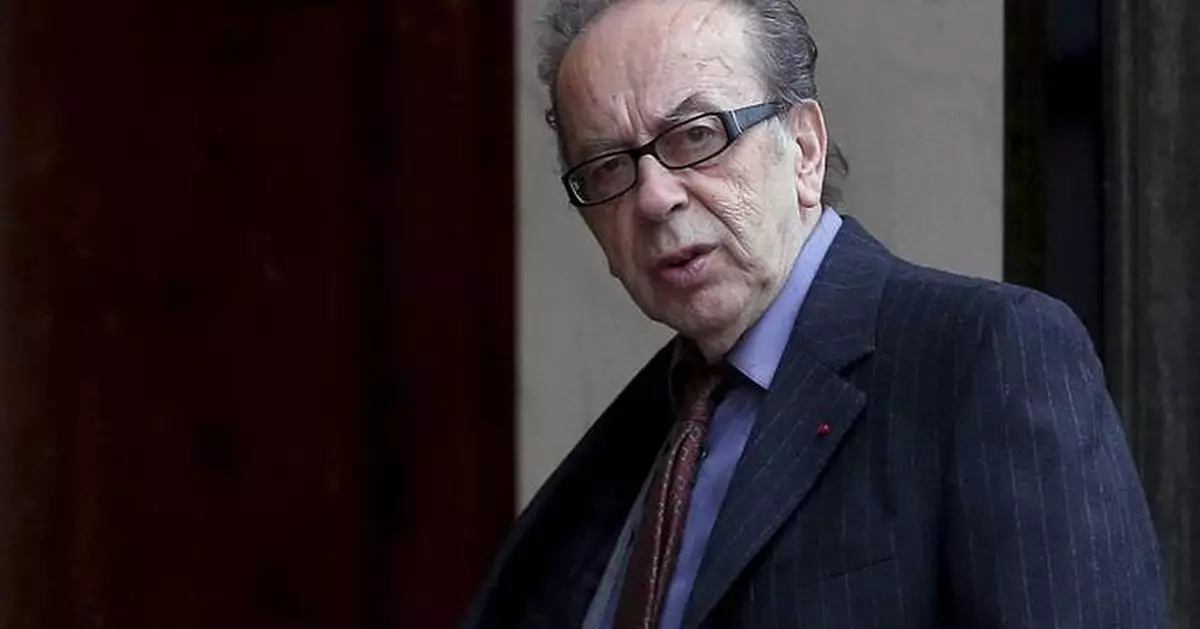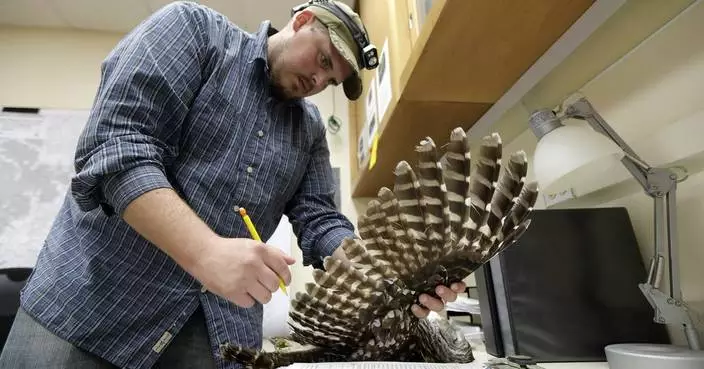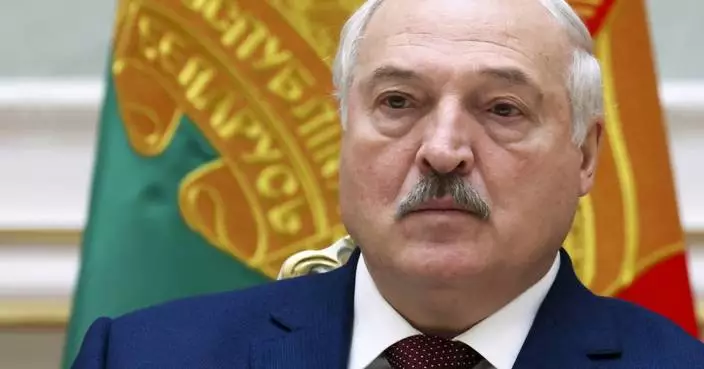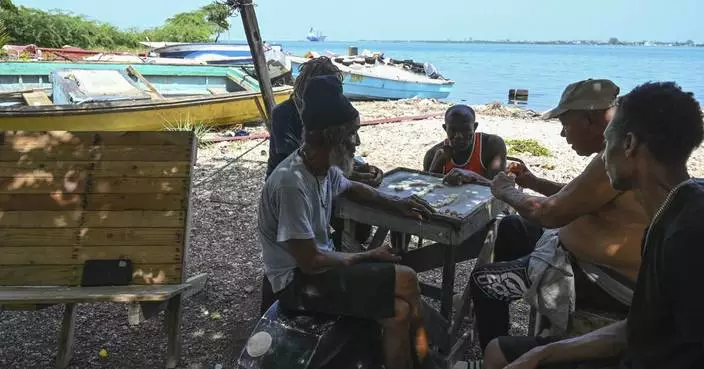TIRANA, Albania (AP) — Albanian novelist and poet Ismail Kadare, whose irreverent works from inside communist Albania earned him international renown and repression from the country's dictatorship, has died in Tirana, his publishing editor said Monday. He was 88.
Kadare won a number of international awards, and had long been mentioned as a possible contender for the Nobel Prize in literature.
Albanian President Bajram Begaj praised Kadare as the country's “spiritual emancipator.”
“Albania and Albanians lost their genius of letters ... the Balkans (lost) the poet of its myths, Europe and the world (lost) one of the most renowned representatives of modern literature,” Begaj said in a statement released by his office.
Albania's government declared two days of national mourning on Tuesday and Wednesday, when flags will fly at half-staff. A minute's silence will be observed nationwide Wednesday following Kadare's funeral.
Onufri Publishing House editor Bujar Hudhri said the author died Monday morning after being rushed to a hospital.
A nurse at the hospital said he was taken to the emergency room after suffering cardiac arrest. She spoke on condition of anonymity because she was not authorized to talk to the media.
Kadare became internationally recognized after his novel “The General of the Dead Army” — which later inspired a film starring Marcello Mastroianni and Anouk Aimee — was published in 1963. The book told the story of an Italian general who was sent to Albania to find and repatriate the bones of thousands of his compatriots killed there during World War II, and who dwells on the futility of the task and of war.
At the time, Albania was still governed by the communist government of late dictator Enver Hoxha that had turned the small, mountainous Balkan country into Europe's most isolated.
Celebrated for the delicate writing of his novels, Kadare fled to France in the fall of 1990, just a few months before the collapse of the communist regime following student protests in December. He lived in Paris and had recently returned to Tirana, the Albanian capital.
During a visit to Albania last year, French President Emmanuel Macron awarded him the Grand Officer of the Legion of Honor title. France had previously also made him a foreign associate of the Academy of Moral and Political Sciences, as well as Commander of the Legion of Honor.
Kadare was awarded a number of international prizes, including the inaugural International Booker Prize in 2005. His works, which included more than 80 novels, plays, screenplays, poetry, essays and story collections, were translated into 45 languages.
Born on Jan. 28, 1936, in the southern Albanian city of Gjirokaster, Kadare graduated from Tirana University's History and Philology Faculty and went on to study at Moscow's Maxim Gorky Literature Institute.
But he was recalled after Hoxha split with the Soviet Union — the first of two great ruptures with major communist powers that was later to conclude with China.
Back in Albania, Kadare won a reputation as a poet and novelist, but soon fell foul of the communist regime, which banned several of his works and briefly exiled him to the provinces.
“The General of the Dead Army” attracted major international attention when it was translated into French and published in the West. This recognition abroad has been credited with shielding Kadare from the more violent retribution Albania's communists routinely reserved for dissidents.
After the fall of communism in Albania, Kadare resisted calls from different political parties or politicians to become the country’s president.
He is survived by his wife, Helena, also a writer, and his daughters Gresa and Besiana.
The funeral will be held on Wednesday.
Semini reported from Bari, Italy.

FILE - Albanian novelist Ismail Kadare arrives at the Elysee Palace to receive the France's Legion d'Honneur medal by French President Francois Hollande, in Paris, on May 30, 2016. Renowned Albanian novelist Kadare has died after being rushed to a hospital in the Albanian capital, his publishing editor said on Monday. He was 88. (AP Photo/Thibault Camus, File)
TUNIS, Tunisia (AP) — Tunisia's increasingly authoritarian leader has scheduled the next presidential election for October without saying whether he will seek a second term after five tumultuous years at the head of the North African nation once seen as a model of democracy for the Arab world.
President Kais Saied set Oct. 6 for the election in a decree issued late Tuesday, according to a statement from the presidency. Saied's first term ends on Oct. 23.
The election will be voters’ first chance to evaluate Saied’s tenure amid an economic crisis and the drift into authoritarianism.
Saied ran in 2019 on a populist, anti-corruption platform that energized Tunisians disillusioned with party politics and economic stagnation following the Arab Spring pro-democracy protests that in 2011 toppled the country's longtime dictator.
However, Saied reversed some of Tunisia’s democratic gains, rewriting the constitution to consolidate his power and jailing critics, including from the largest political parties. Analysts expect he will run for a second, five-year term given that the new constitution grants him full powers.
He also dissolved the parliament two years ago after lawmakers of the Ennahda opposition Islamist party held a virtual session seeking to annul his actions in 2021 to assume sweeping powers.
Saied argued at the time that the country was facing “imminent peril” because of protests and economic vows. He has governed the country by decree ever since.
More than 40 of Saied's critics and political opponents have been jailed in the past year on various charges of conspiring against the country's security, including the leader of Ennahda, the largest opposition party.
Earlier this year, its leader, Rached Ghannouchi, was sentenced to three years in prison on allegations that his party relied on foreign financing to bankroll its political campaigns in 2019. The sentence was added to Ghannouchi's 15-month prison term that a different court handed down last year after he was found guilty of supporting terrorism and inciting hatred.
Tunisia’s main opposition coalition has said it won’t take part in the presidential election unless Saied’s political opponents are freed and judicial independence is restored. The National Salvation Front, a coalition of the main opposition parties that includes Ennahdha, has expressed concern that the election wouldn’t be fair
Several other political leaders have announced their candidacy, including the leader of the right-wing Free Destourian Party, Abir Moussi, who is in custody on suspicion of disturbing public order. Lotfi Mraïhi of the Republican Popular Union party, who unsuccessfully ran for the presidency in 2019, is also running, although authorities have issued a warrant against for alleged money laundering.
Surk contributed from Nice, France.
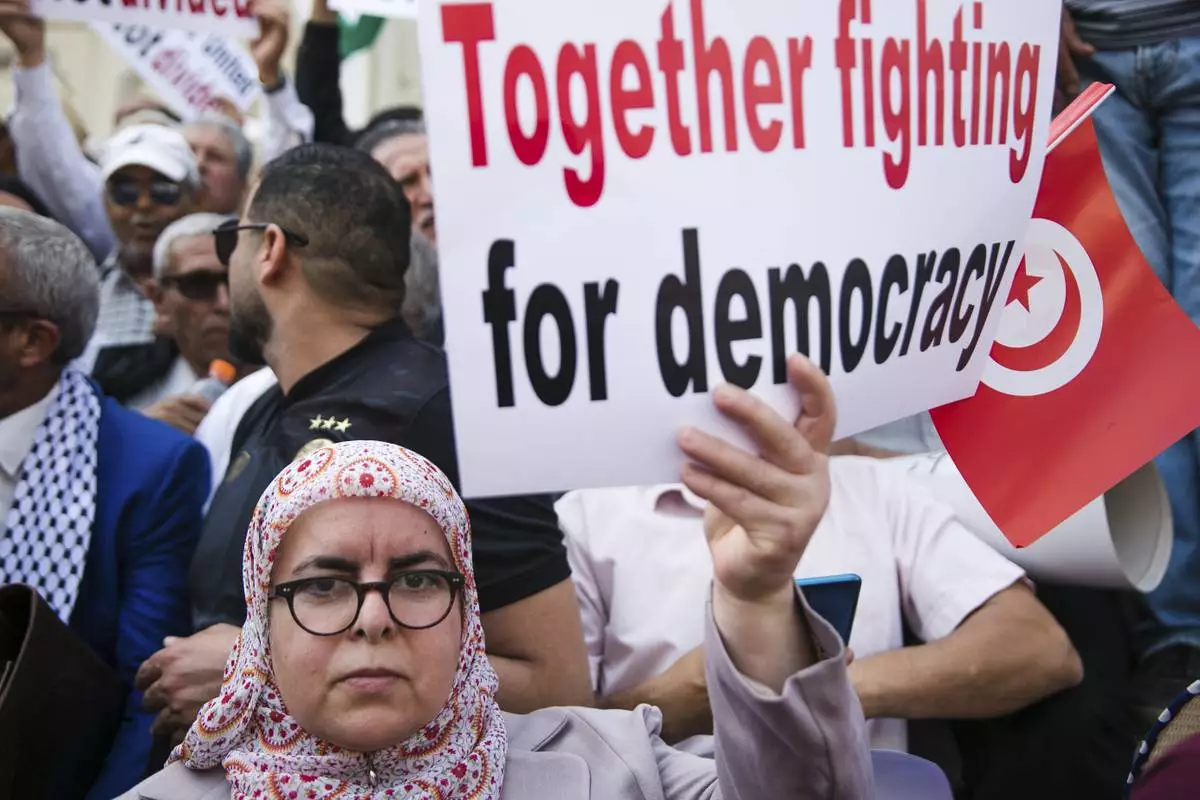
FILE - A woman holds up a banner during a protest against Tunisian President Kais Saied in Tunis, Tunisia, Sunday, May 15, 2022. Tunisia presidency says the North African country will hold its next presidential elections on Oct. 6. (AP Photo/Hassene Dridi, File)
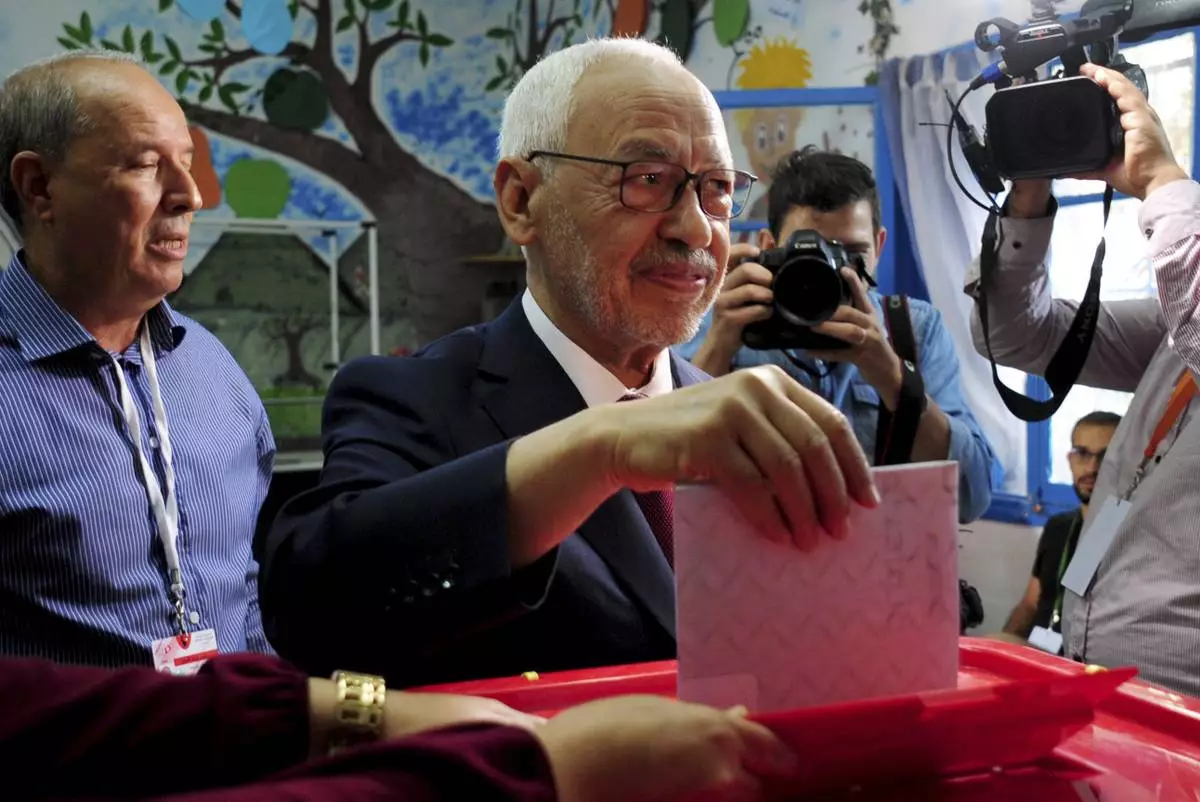
FILE - President of the Islamist party Ennahda and candidate for the Parliamentary election Rached Ghannouchi votes in a polling station south of Tunis, Tunisia, Sunday, Oct. 6, 2019. Tunisia presidency says the North African country will hold its next presidential elections on Oct. 6, 2024. The main opposition coalition that includes the once-powerful Ennahdha Islamic party, said it won’t take part in the vote unless Saied’s political opponents are freed and judicial independence is restored.(AP Photo/Hassene Dridi, File)
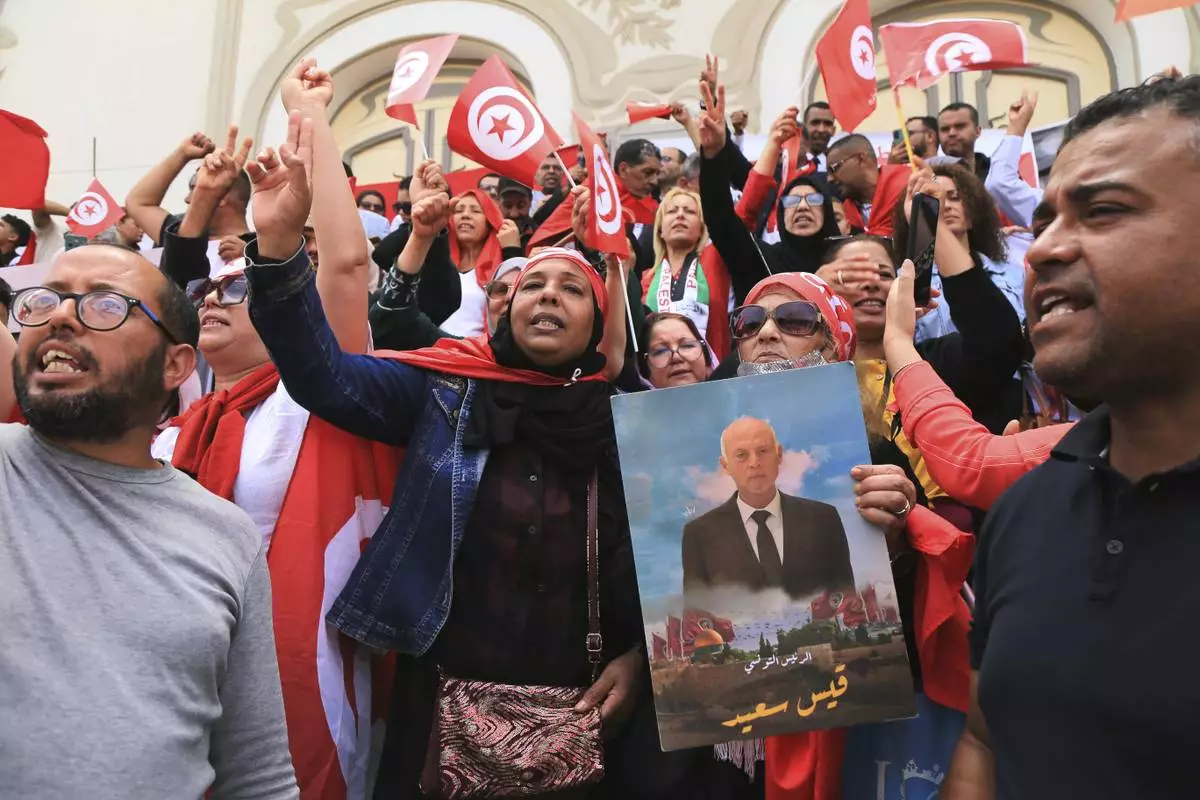
FILE - Supporters of Tunisian President Kais Saied stage a demonstration on Avenue Habib Bourguiba in support of the president's measures and against foreign interference, in the capital Tunis, Sunday, May 19, 2024. Tunisia presidency says the North African country will hold its next presidential elections on Oct. 6. Its increasingly authoritarian President Kais Saied has yet to announce if he will seek a second term after five tumultuous years of leading Tunisia, once seen as a model of democracy for the Arab world. (AP Photo/Anis Mili, File)
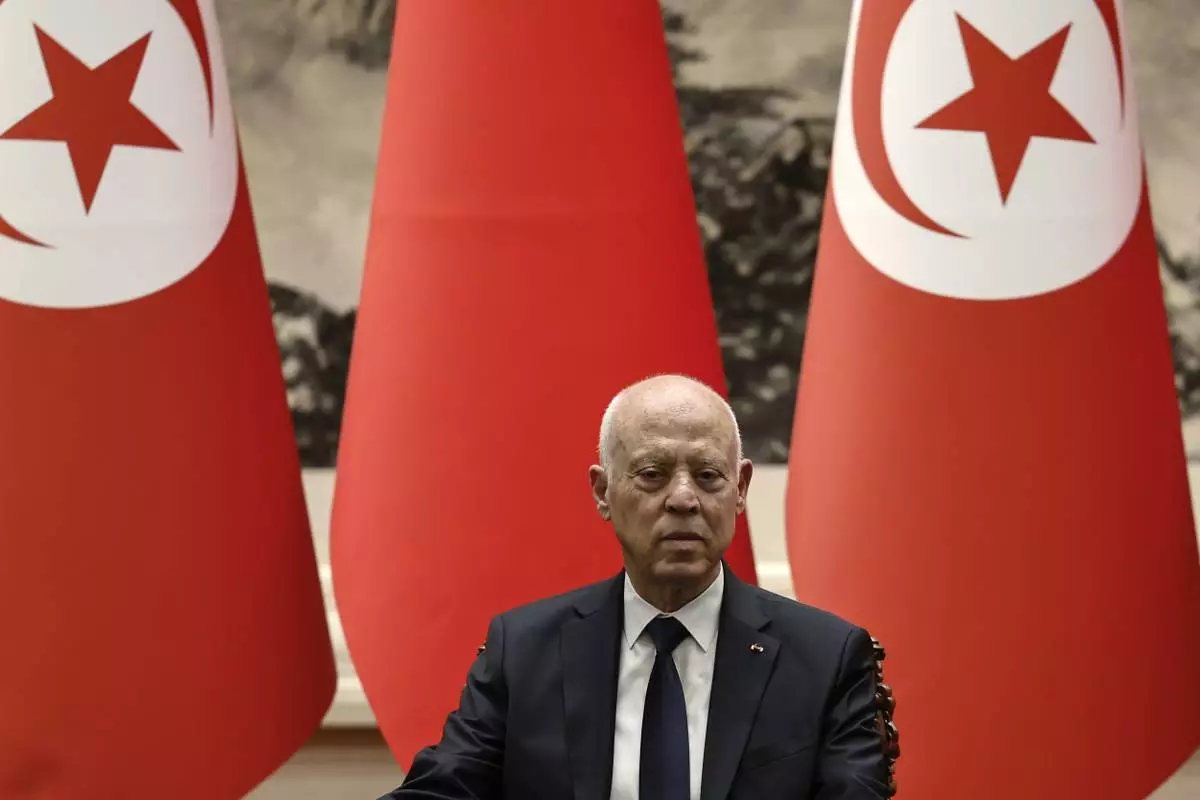
FILE - Tunisian President Kais Saied attends a signing ceremony with Chinese President Xi Jinping at the Great Hall of the People in Beijing, Friday, May 31, 2024. Tunisia presidency says the North African country will hold its next presidential elections on Oct. 6. Its increasingly authoritarian President Kais Saied has yet to announce if he will seek a second term after five tumultuous years of leading Tunisia, once seen as a model of democracy for the Arab world. (Tingshu Wang/Pool Photo via AP, File)



